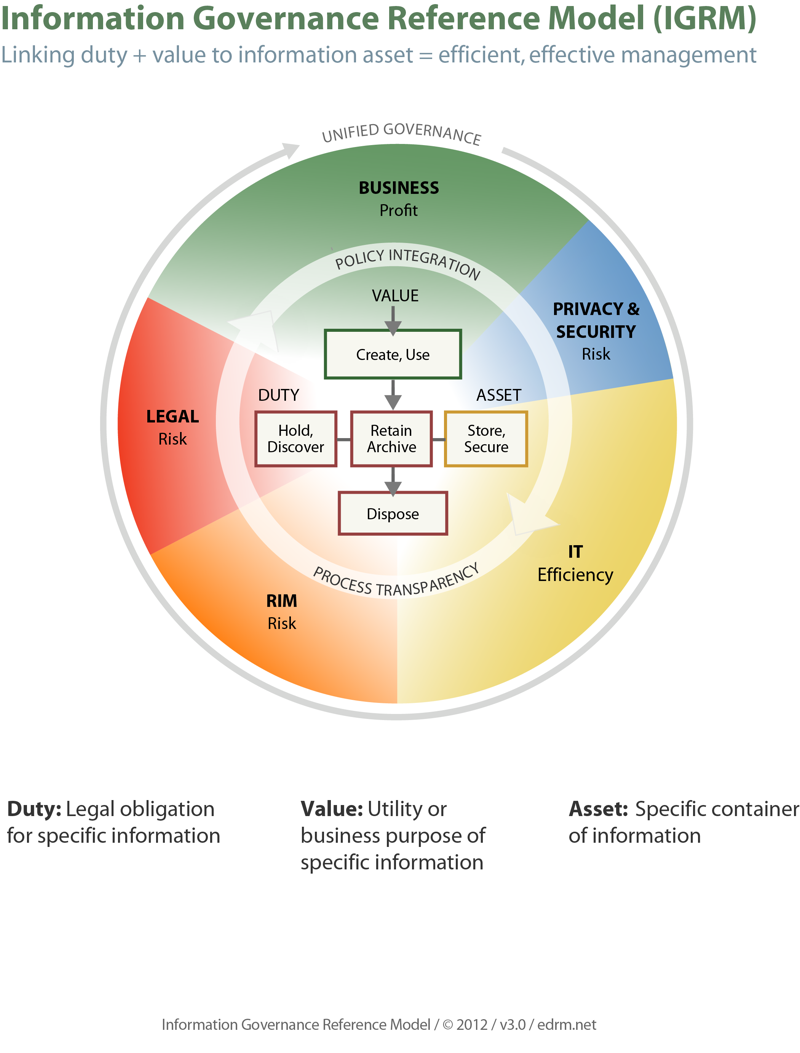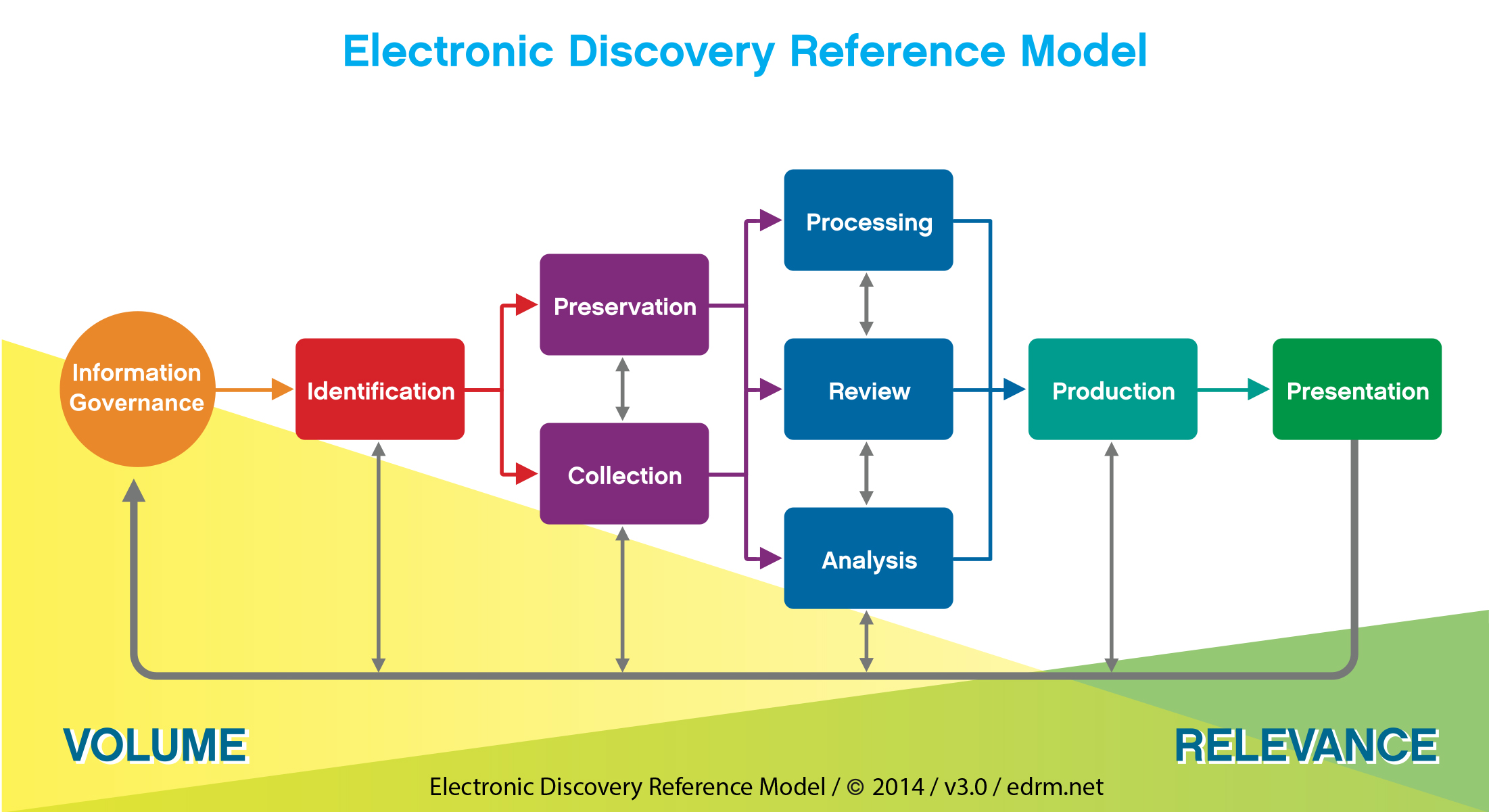The post looks at Information Governance and digital preservation. The post author wrote the first textbook on information governance (IG). He used key models as part of this, such as the Information Governance Reference Model (IGRM), E-discovery Reference Model and the OAIS model. The question to answer is whether or not long term digital preservation should be a part of a information governance strategy.
Information Governance is defined as:
a set of multi-disciplinary structures, policies, procedures, processes and controls to manage information at an enterprise level that supports an organization's current and future regulatory, legal, risk, environmental and operational requirements.
- "Long term digital preservation applies to digital records that organizations need to retain for more than 10 years."
- digital preservation decisions need to be made early in the records lifecycle, ideally before creation.
- Digital preservation becomes more important as repositories grow and age.
"The decisions governing these long term records - such as digital preservation budget allocation, file formats, metadata retained, storage medium and storage environment - need to be made well in advance of the process of archiving and preserving."
"All this data - these records - cannot simply be stored with existing magnetic disk drives. They have moving parts that wear out. The disk drives will eventually corrupt data fields, destroy sectors, break down, and fail. You can continue to replace these disk drives or move to more durable media to properly maintain a trusted repository of digital information over the long term."
If you move to a cloud provider that makes preservation decisions for you, then "you must have a strategy for testing and auditing, and refreshing media to reduce error rates, and, in the future, migrating to newer, more reliable and technologically-advanced media."
Your information governance strategy is incomplete if do not have a digital preservation strategy as well. Your organization "will not be well-prepared to meet future business challenges".


No comments:
Post a Comment